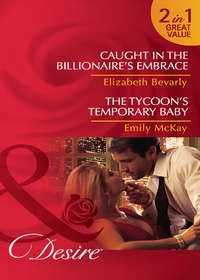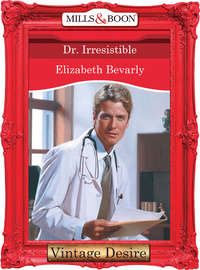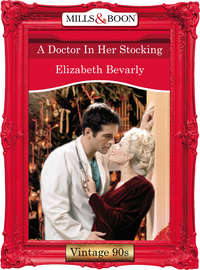
Taming The Beastly MD
In fact, Maria had been going out way more often than usual lately, Rita reflected as she locked the door behind herself. Which was surprising, because Maria didn’t have a steady boyfriend, or much of a social life outside of her work managing the original Baronessa Gelateria on Hanover Street. She used to be home as often as Rita was. But for the past couple of months she’d been out quite a lot, something that suggested there might be someone special in her life. But Maria hadn’t mentioned meeting anyone, and Rita certainly hadn’t seen her with anyone out of the ordinary.
As she stepped into the foyer of the brownstone, she realized immediately that she was indeed alone. The first floor of the four-story brick building served as a kind of community living room for the sisters, and tended to be a place of congregation, regardless of the hour. With its hardwood floors and leafy plants and beige furnishings and powder-blue accents in the form of pillows and such, the first floor of the brownstone was inviting in a comfy, elegant kind of way that made people want to linger. At the moment, though, it was empty, and not so much as a discarded jacket or pair of shoes indicated that anyone had been home anytime recently.
Rita had, as she always did in the afternoons following her shift, walked home tonight, unconcerned about her safety because the streets of Boston’s North End were always well populated on a Friday night, even in a light drizzle, as there was tonight. Now she shrugged off her raincoat and ran her fingers through her damp, dark bangs, then forsook the elevator to make her way up the stairs to her third-floor apartment. Once inside, she hung her coat on the rack by the door and went straight to her kitchen to brew herself a cup of chamomile tea. She wasn’t normally a night owl, but she was still too wound up from her shift to go to bed just yet. So, dipping her teabag in and out of her mug, she moved to the bathroom for a long, hot soak in a tub full of lavender-scented water.
It was going on one-thirty, and she was about to turn off her bedside lamp, when she heard Maria coming in downstairs. Pushing back the covers, Rita climbed out of bed and padded barefoot to her front door, waiting until she knew for sure that her sister was alone before opening it. It wasn’t so much that she didn’t want to interrupt anything Maria might be doing with the potential someone special in her life that she didn’t seem to want to tell anyone about, but Rita didn’t want anyone else to catch her in her neon-pink pajamas decorated with ice-cream desserts, which she’d fallen in love with at the store and thought appropriate for a Barone. But she detected no footsteps other than Maria’s on the stairs, so she stepped out of her apartment, peeked over the stair rail and called down to her sister.
“Hey, you,” she said. “Where have you been?”
At the summons, Maria looked up over the stair rail two floors below and smiled. Her dark hair fell just below her shoulders, and her dark eyes twinkled merrily, even in the scant stairwell light. “Hi,” she called softly out of habit, even though there was no one else in the building to disturb anymore. But instead of answering Rita’s question, she asked one of her own. “What are you doing up so late?”
Rita hesitated a moment before telling her sister, “I got another anonymous gift at work tonight.”
Immediately Maria’s smile fell. “That’s what? Three now?”
Rita nodded.
“And you still have no idea who’s leaving them?”
Now Rita shook her head. “And no idea why.”
“Let me drop my purse and shoes in my apartment,” Maria said, “and I’ll be right up.”
Rita murmured her thanks and returned to her own apartment, leaving her door open so that her sister could come inside. A few moments later Maria arrived, still dressed in her Friday-night outfit of black capri pants and sapphire-blue silk shirt. The combination was striking with her dark good looks, and Rita, who was hopelessly fashion-challenged, made a mental note to copy a similar outfit the next time she went out. Then she wondered why she was bothering to make such a mental note, seeing as she never went out anyway.
She sighed fitfully as Maria took her seat on the overstuffed chintz sofa opposite the overstuffed chintz chair Rita occupied herself. Her decorating sense was no better than her fashion sense, so she’d copied the room down to every detail from a photograph in a magazine. Between the chintz furniture and the lace curtains, and the hooked floral rugs on the hardwood floor, she’d managed to capture an English-country-cottage look fairly well, right down to the dried flower wreaths and watercolor landscapes on the cream-colored walls. Usually, this room soothed Rita. Tonight, though, she just felt edgy.
“You didn’t see who left it?” Maria asked without preamble.
Again Rita shook her head. “And it’s really starting to creep me out, Maria. I mean, why would he leave gifts without letting me know who he is?”
“What do your instincts tell you?” Maria asked.
Rita thought about that for a moment. “I don’t know,” she said honestly. “Part of me feels like whoever is doing it is doing it because he’s shy and is afraid I might rebuff him.”
“How does the other part of you feel?”
Rita met her sister’s gaze levelly now. “Like maybe he’s not shy. Like maybe he’s a—” She couldn’t even say the word aloud.
“A stalker?” Maria asked, voicing the very word Rita had hoped so much to avoid. Just like that, a cold shudder went scurrying right down her spine.
“Yeah,” she said. “Like maybe he’s…one of those.”
Maria looked doubtful. “I don’t know,” she said. “Maybe I’m being naive, but I bet you do just have some kind of secret admirer at the hospital. I mean, don’t stalkers usually strike closer to home? And don’t they inspire terror? What was the gift this time? Unless it was a decapitated pet or a dismembered Barbie doll or something, you’re probably fine.”
Rita rose from the sofa and went to retrieve the square white box from her purse, then took it to Maria and placed it in her palm.
“Too small to be a decapitated pet,” her sister quipped. “Unless you’ve been keeping goldfish you haven’t told me about. Just promise me there’s not a severed Barbie hand in there.”
“Maria,” Rita said pleadingly.
“All right, all right. Enough with the sick jokes. I was just trying to make you feel better.”
“Talk of headless animals and doll parts is not making me feel better,” Rita told her.
“I apologize. It’s late,” her sister said by way of an explanation. Then Maria opened the box and moved aside the tissue, sighing with the same sort of delight Rita had exhibited herself upon seeing what was inside.
“Oh, it’s beautiful,” she said as she carefully withdrew the crystal heart from inside the box.
“Yeah, but does it refer to my job, or the guy’s feelings for me?” Rita asked.
“And it’s also Waterford,” Maria added, not answering the question, as she held the heart up to the light. “Which means, A, this guy’s got good taste, and B, this guy’s got good money.”
“How can you tell it’s Waterford?” Rita asked, moving to the sofa to sit beside her sister.
“The little seahorse etched on the side,” Maria said, pointing to the logo in question. “See?”
Rita did see the logo. What she didn’t see was why the purchaser had spent so much money this time. She’d seen the bandaged heart pin in the hospital gift shop for ten dollars, and even with her unpracticed eye, she knew the charm bracelet couldn’t have cost much more than that. This, though, was clearly a costly little trinket. Why the sudden leap in price tag?
“Okay, so the first gift came on Valentine’s Day,” Maria was saying as she admired the crystal heart, “and the second—” She gasped suddenly. “Oh, wow. I just now made the connection. Valentine’s Day. The family curse. No wonder you’re concerned.”
Rita expelled an errant breath and told herself her sister was being silly. Oh, sure, there were plenty of Barones who believed in the curse Lucia Conti had put on the family two generations ago, but Rita had never been one of them. She was too sensible to believe in curses. Well, pretty much. But she’d heard the story like everyone else in the family, and she could see why some of the Barones believed in it.
When Marco Barone, Rita’s grandfather and the founder of Baronessa Gelati, had first come to the United States from Sicily in the thirties, he worked as a waiter at Conti’s, a restaurant on Prince Street that was owned by friends of his parents, another Sicilian couple. The Contis had a daughter named Lucia, who, it was said, loved Marco very much, and it was always understood between the two families that Lucia and Marco would someday marry. But Marco met and fell in love with Angelica Salvo, who also worked at Conti’s, and they married instead. On their wedding day—Valentine’s Day—Lucia, it was also said, had put a curse on them and every future generation of Barones. “You got married on Valentine’s Day,” Lucia was reported to have said, “and may your anniversary day be cursed. A miserable Valentine’s Day to both of you, from this day forward.”
Of course, not every Valentine’s Day had resulted in misfortune for the Barones. But a number of tragedies, and a lot of things that had gone wrong for the family had happened on that date. On that first Valentine’s Day after their wedding, Angelica miscarried her and Marco’s first child. Some years later on Valentine’s Day, another child of theirs, one of a pair of twin sons, was kidnapped from the hospital nursery when he was only two days old and was never seen again.
And more recently, there had been a professional debacle this past Valentine’s Day, when Baronessa Gelati had thrown a huge gala to launch a new flavor, passionfruit. Someone had spiked the gelato prior to the event with habanero peppers, and everyone who tasted it suffered from a burning mouth. One man had even suffered from an attack of anaphylaxis, a serious allergic reaction. It had been a public-relations nightmare that not even PR whiz Gina had been able to handle. The Barones had been forced to hire an outside spin doctor to help get the company’s image back on track. They were still seeing repercussions from the incident.
Not the least of which was Gina’s marriage to said spin doctor, Flint Kingman, which, now that Rita thought about it, sort of negated the Valentine’s Day curse.
But Rita could still see why Maria might bring up the Valentine’s Day curse now, even if Rita didn’t believe in it herself.
“So the first gift came on Valentine’s Day,” Maria began again. “And the second gift came on your birthday. Both special occasions,” she noted. “But today isn’t a—”
“Today is the third anniversary of my first day working at Boston General,” Rita said morosely. “Another special occasion of sorts. Whoever’s doing this even remembers the day I started working there.”
“But that narrows it down,” Maria said triumphantly. “That means whoever’s leaving these is definitely someone you work with, and he must have been there three years ago when you started.”
Rita rolled her eyes. “Oh, fine. That narrows it down, all right. To about a couple hundred people.”
“But it must be someone you work fairly closely with,” Maria said. “It’s probably someone in CCU.”
“But I started in the E.R.,” Rita reminded her sister. “And then I worked briefly in geriatrics before I moved to CCU.”
“It still must be someone at work,” Maria said. “That’s where the gifts arrive, and with this anniversary thing, you know that must be it.”
It still didn’t help, Rita thought. There were scores of people who could be possibilities.
“I think it’s kind of sweet, really,” Maria said. “Kind of romantic.”
“Romantic?” Rita echoed, thinking that was a strange word to be uttered by a Boston University MBA who spent most of her time working. “Since when did you become such a romantic?”
Maria blushed a little at the question, something else Rita thought odd. “I’m not a romantic,” she said. But there was something in her tone that suggested otherwise. “I just don’t think it’s a stalker, that’s all. I think it’s someone who has a crush on you.”
Rita frowned. “Maria, grown men don’t have crushes.”
“Sure they do,” she objected. “And sometimes it’s the big, strong, tough guys who are the most susceptible.”
Oh, spoken like an idealistic, virginal twenty-three-year-old, Rita thought wryly. Not that Rita should throw stones, seeing as how she was a somewhat idealistic, though definitely virginal twenty-five-year-old. Still, she had seen more of the world than her younger sister had, mostly thanks to that time in the E.R. And she hadn’t seen any big, strong, tough guys who would qualify for secret admirer status. Stalker status, surely, but—
Oh, dammit. She’d let that word out again. Somehow, though, deep down, she wasn’t any more convinced of that possibility than Maria was. Her instincts were good, and although she couldn’t rule out the sinister entirely, Rita still felt more strongly that whoever was leaving the gifts had no intention of hurting her.
But she couldn’t be sure.
Of course, she’d been known to be wrong before.
“I don’t know what to do,” Rita said. “Whether this person is a crazy psycho or not, I don’t like getting anonymous gifts. But I don’t know how to out the person, either.”
Maria nestled the crystal heart back into its tissue bed and replaced the top on the box. “I don’t think it’s anything to worry about,” she said. “But if it makes you feel that uncomfortable, then maybe you should stop wearing the pin and the bracelet. Maybe if you did, your secret admirer would notice, and then maybe he’d say something about it and reveal his identity.”
“I suppose it’s worth a shot,” Rita said absently.
“And if you want to find a new home for this heart…” her sister added with a smile, holding up the box meaningfully.
Rita smiled back as she retrieved the box from Maria’s grasp. She wasn’t sure why she wanted to keep it, but she did. She wasn’t sure why she wore the pin and heart to work everyday, either. Maybe, deep down, she did know whoever was leaving the gifts was doing it because he admired her secretly.
And maybe, deep down, something about that made Rita feel nice. She’d never had anyone admire her before. Not for herself, anyway. She’d had the occasional date in high school and college, of course, but she’d always wondered if the guys in question had only asked her out because she was one of the wealthy Barones. Especially after her twenty-first birthday, when, like all her siblings, she’d come into a trust fund worth a million dollars.
Rita had yet to touch her own million, however, and had instead left it invested, thinking someday she’d need it for something. She didn’t know what. She did know, however, that she wasn’t suited to the social butterfly life, and she loved working as a nurse. Maybe someday, she thought, she’d have children, and she could use the money for them. But her secret admirer obviously didn’t know or care about her wealth, otherwise, he would have revealed himself to her right off the bat, and would have tried to insinuate himself into her life. So maybe it was Rita herself, and not her money, that attracted him. In that respect, she couldn’t help but like him.
“No, the heart is fine where it is,” she said as she took the box from her sister and cradled it in her hand.
She just wished she could say the same for herself. Because in spite of Rita’s instincts saying the contrary, Maria was right in that stalkers tended to target women at their homes, eventually. Rita wondered if her mystery man knew where she lived. If it was indeed someone she worked with, he’d certainly have no trouble locating her. Even if it wasn’t a co-worker, if he’d found her at the hospital, all he would have to do was follow her home one day to find out where she lived. Of course, if he’d done that, he’d also know she walked home alone. And he’d probably know Gina had moved out. And he’d probably know Maria was often not at home these days, something Rita was going to have to ask her younger sister about soon. Which meant he also probably knew that left Rita home alone much of the time.
She exhaled a slow, unsteady breath and told herself she was overreacting. Maria was probably right, too, in that whoever was doing this was harmless. Rita reminded herself that her instincts were good, and that her instincts told her she probably had nothing to fear. But in reminding herself of that, she inescapably reminded herself of something else, too.
That she’d been known to be wrong before.
“Do you have a date for the party next weekend?” Maria asked as she rose to leave. “You did remember the party next weekend, didn’t you, Rita?” she added, probably because she thought Rita didn’t remember.
And she was right. Rita didn’t. Until now.
“The one at the Baronessa business headquarters?” Maria went on. “The one to launch the family’s new PR contest to counter all the bad press from the passionfruit disaster? The contest that was Gina’s brilliant brainchild? The contest where the winner gets to name a new flavor of gelato? Remember that?”
“Oh, no,” Rita groaned. “I forgot all about it. There’s been so much going on at work lately.”
Her sister frowned at her. “Rita,” she said in the scolding tone of voice impatient mothers used with recalcitrant toddlers. “You are going, aren’t you? All the Barones are expected to be there, to show our support for the family and the business. You have to go. You know you’ll never hear the end of it if you don’t.”
“Yes, yes, I’m going,” Rita assured her sister.
“And you do have a date for the party, don’t you?” Maria asked further. “Because you know you’ll never hear the end of it if you don’t,” she repeated with a smile.
Rita closed her eyes and bit back another groan. What Maria said was certainly true. The older generation of Barones was crazy for grandchildren and grand-nieces and grand-nephews, and they weren’t afraid to let anyone—especially the potential bearers of said grandchildren and grand-nieces and grand-nephews—know it. Whenever a Barone of marriageable age showed up at a family gathering without a date, they were set upon by the older generation, wanting to know how they expected to get married and have children if they remained alone.
With Rita, though, who never brought dates to such events, it was becoming a problem of epic proportions. Naturally, it wouldn’t have been a problem had she entered the Sisters of Charity as her sister Colleen had. Religious conviction was the only acceptable excuse for such longstanding abstinence from a social life. And even trying to use Colleen as an excuse these days didn’t wash, seeing as how she had left the Sisters of Charity not long ago and was now engaged to her college love.
“Um, actually…” Rita began. But she couldn’t quite make herself finish the revelation.
“Rita,” Maria said again in that same motherish tone, “you haven’t even invited a date yet?”
“I forgot, all right?” Rita said.
“And you probably don’t have anything to wear, either, do you?”
“Well…”
“Fine,” Maria said in a voice of put-upon patience. “I’ll take off early Monday and we can go shopping. I wouldn’t mind picking up something new myself. The date, though…” she added, letting her voice trail off meaningfully.
“I know,” Rita said. “I’ll take care of it. I promise.”
Though how she was going to keep that promise was beyond her. This event was going to be a stellar, five-star, formal event. It called for someone suave, someone debonair, someone who was tall, dark and handsome, and sophisticated, distinguished and well-connected. Someone like…
Конец ознакомительного фрагмента.
Текст предоставлен ООО «ЛитРес».
Прочитайте эту книгу целиком, купив полную легальную версию на ЛитРес.
Безопасно оплатить книгу можно банковской картой Visa, MasterCard, Maestro, со счета мобильного телефона, с платежного терминала, в салоне МТС или Связной, через PayPal, WebMoney, Яндекс.Деньги, QIWI Кошелек, бонусными картами или другим удобным Вам способом.
Приобретайте полный текст книги у нашего партнера:











